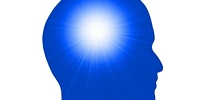|
|
 Acne (1,500) Acne (1,500)
 Addictions (1,500) Addictions (1,500)
 Advice (1,500) Advice (1,500)
 Allergies (1,092) Allergies (1,092)
 Alternative Medicine (1,500) Alternative Medicine (1,500)
 Anti Aging (1,500) Anti Aging (1,500)
 Breakup (1,500) Breakup (1,500)
 Cancer (1,499) Cancer (1,499)
 Dental Care (1,500) Dental Care (1,500)
 Disabilities (1,500) Disabilities (1,500)
 Divorce (1,500) Divorce (1,500)
 Elderly Care (1,498) Elderly Care (1,498)
 Goal Setting (1,500) Goal Setting (1,500)
 Hair Loss (1,500) Hair Loss (1,500)
 Health and Safety (1,497) Health and Safety (1,497)
 Hearing (1,500) Hearing (1,500)
 Law of Attraction (1,499) Law of Attraction (1,499)
 Marriage (1,500) Marriage (1,500)
 Medicine (1,497) Medicine (1,497)
 Meditation (1,499) Meditation (1,499)
 Men's Health (1,500) Men's Health (1,500)
 Mental Health (1,500) Mental Health (1,500)
 Motivational (1,500) Motivational (1,500)
 Nutrition (1,495) Nutrition (1,495)
 Personal Injury (1,499) Personal Injury (1,499)
 Plastic Surgeries (1,500) Plastic Surgeries (1,500)
 Pregnancy (1,496) Pregnancy (1,496)
 Psychology (1,500) Psychology (1,500)
 Public Speaking (1,500) Public Speaking (1,500)
 Quit Smoking (1,500) Quit Smoking (1,500)
 Religion (1,499) Religion (1,499)
 Self Help (1,500) Self Help (1,500)
 Skin Care (1,500) Skin Care (1,500)
 Sleep (1,500) Sleep (1,500)
 Stress Management (1,500) Stress Management (1,500)
 Teenagers (1,492) Teenagers (1,492)
 Time Management (1,500) Time Management (1,500)
 Weddings (1,500) Weddings (1,500)
 Wellness (1,500) Wellness (1,500)
 Women's Health (1,500) Women's Health (1,500)
 Women's Issues (1,500) Women's Issues (1,500)
|
Drug dependency has become a severe problem in most countries with millions addicted to substances such as heroin, methamphetamine, cocaine, alcohol and others. In recent years, staggering information regarding the amount of drug use and abuse prevalent in society has raised much awareness about the problem; yet treating drug addiction has not received the same amount of press.
Many people who know someone with a drug or alcohol problem believe that some time in a rehabilitation centre will make all their problems go away and that the person will be cured following treatment. This is not the case, as drug addiction is not caused by the drugs; the problem lies within the addict.
For years, any type of substance abuse problem has been labelled a moral failing - that the addict is weak, lacks self-will and is a bad person. In the present day, a greater number of people are beginning to see addiction as a disease - that addiction is terminal and incurable, but can be arrested, treated and abstinence maintained. The disease is obsessive and compulsive in nature, leading to addicts obsessively and compulsively seeking drugs and other substances or experiences which will aid them in avoiding unwanted feelings.
Why do addicts use drugs?
Addicts are usually incapable of processing and expressing their feelings in a healthy way. Inner conflict and an inability to deal with life and the feelings which accompany it are the motivation for addicts to use substances. Getting high helps addicts to avoid their feelings; whether happy, sad, depressed or ecstatic, addiction thrives on an inability to cope with feelings, driving addicts to use.
When an addict uses drugs and engages in obsessive and compulsive behaviour, they soon begin to lose all power over their actions. This is the point at which their using progresses to a level where nothing will stop them - losing family, their jobs, houses and self-respect mean nothing compared to the desperation of getting the next hit. Addicts usually recognise their using as a problem, yet are unable to stop using drugs, despite their best intentions. They are powerless over their disease and cannot stop using on their own, even though they have the desire to stop. It is at this point that many addicts seek help for their problem.
How is drug addiction treated?
Treating drug addiction has progressed from the way the problem was previously dealt with centuries ago. Exorcisms and imprisonment in state mental hospitals were the normal way of dealing with addicts before more was known about the disease. These days, drug addiction counselling is based on helping the addict deal with their underlying issues in a caring and supportive way and in a safe environment. Individual counselling as well as group therapy has proved to be the best method of treating drug addiction through the positive results yielded by the combination.
For addicts that have the privilege of being able to attend a treatment programme in a rehabilitation centre and/or receive drug addiction counselling, the prognosis of maintaining sobriety is positive. However, an addict can only live a life of recovery if they are willing to help themselves. If an addict does not want to stop using, no amount of therapy or time spent in a treatment centre will help them, unless they are motivated to stop and to invest their time and energy in helping themselves.
An important part of recovery from any addiction is a daily programme of recovery for the addict to follow. Addiction is incurable and if left untreated will prove to be fatal, yet with a recovery programme which the addict applies themselves to daily, an addict can stay clean and sober for the rest of their life, one day at a time. No matter how much therapy and counselling an addict may receive, life will still present problems and uncomfortable feelings. If an addict is unable to process these feelings in an appropriate manner, they will not be able to maintain abstinence. Because addiction is a disease, it will not simply "go away" - it can be arrested and managed, but this takes effort and willingness on behalf of the addict in question.
A daily reprieve from drugs
A daily programme of recovery that is very successful is a Twelve Step programme as used in Narcotics Anonymous and Alcoholics Anonymous. These programmes are based on the Twelve Steps of Alcoholics Anonymous which lead addicts through a process of admitting that they have a problem, establishing a belief in a power greater than themselves, dealing with life and feelings appropriately and helping other sufferers find recovery.
The programme includes suggestions such as meeting attendance (in which the Twelve Steps and programme are discussed), working with a sponsor (a more experienced member of the fellowship), reading programme literature, written work (exploring the Twelve Steps) and service to the fellowship and society.
Individuals suffering from the disease of addiction do not need to live a life of shame and self hatred anymore. Through counselling and adopting a programme to help maintain a healthy life, mentally and physically, an addict can live the rest of their lives clean from the use of drugs and alcohol. Recovery from drugs and alcohol takes effort and vigilance, but will allow addicts who have lost everything to begin to lead a normal and productive life again.
|
|
|



